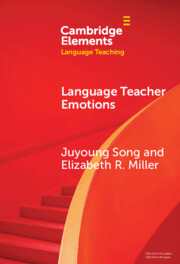Editors:
Heath Rose is Professor of Applied Linguistics and Deputy Director (People) of the Department of Education. Before moving into academia, Heath worked as a language teacher in Australia and Japan in both school and university contexts. He is author of numerous books, such as Introducing Global Englishes, The Japanese Writing System, Data Collection Research Methods in Applied Linguistics, and Global Englishes for Language Teaching.
Jim McKinley is Professor of Applied Linguistics at IOE Faculty of Education and Society, University College London. He has taught in higher education in the UK, Japan, Australia, and Uganda, as well as US schools. His research targets implications of globalization for L2 writing, language education, and higher education studies, particularly the teaching-research nexus and English medium instruction. Jim is co-author and co-editor of several books on research methods in applied linguistics. He is an Editor-in-Chief of the journal System.
Editorial Advisory Board
Gary Barkhuizen, University of Auckland; Marta Gonzalez-Lloret, University of Hawaii; Li Wei, UCL; Victoria Murphy, University of Oxford; Brian Paltridge, University of Sydney; Diane Pecorari, Leeds University; Christa Van der Walt, Stellenbosch University; Yongyan Zheng, Fudan University
Contact the Editors:
If you would like more information about this series, or are interested in writing an Element, please contact Heath Rose and Jim McKinley heath.rose@education.ox.ac.uk and j.mckinley@ucl.ac.uk.
